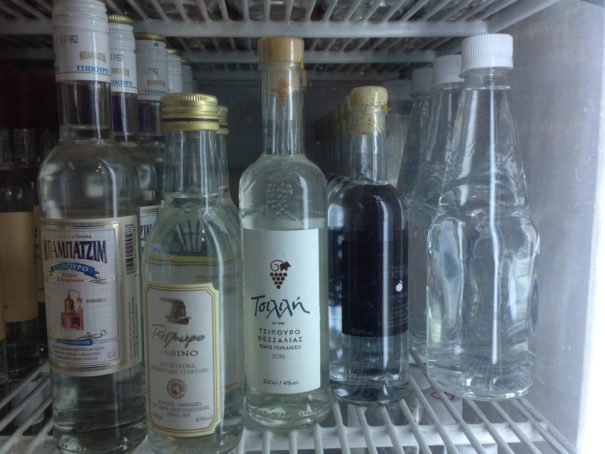
You Can Take Your Xenophobia and Shove It, Geert Wilders

You Can Take Your Xenophobia and Shove It, Geert Wilders

Raki in Athens
I drink raki in a squat in Athens and think of Amsterdam. Raki because it’s cheap and effective: your body slows down, your mind keeps going. My hosts, Iranian migrants trapped in Greece, are on a budget. They’ve been in the squat three months. Their conversation is, as usual, movement.
“Will they take us in Holland?” they ask me, “or should we go to Germany?”
These are questions to which I have no answers. Who is to tell what the asylum services will decide, or how my friends will be able to prove their case? Who knows if they’ll even make it there, with the borders closed and airports getting wise to all these fake passports? And what sort of country will they enter if they finally arrive?
This question is especially pertinent in the Netherlands, where a far right xenophobe with bad hair is poised to take a startling number of seats in the March 15 election. For years, Geert Wilders has promised to ban Islamic asylum seekers, revoke existing asylum documents, outlaw the Koran, leave the E.U., and generally “Make the Netherlands Ours Again.” This time, his words are catching on.
It sounds familiar. If you control for context, just one word separates Geert’s slogan from Trump’s trucker hats. “Ours.”
Whose? I’ve been asking this question for years. In the summers growing up, my family traveled from our home in Iowa to visit extended family in Iran. Amsterdam was our stopover. It seemed an oasis of civility—men and women in sensible yet stylish clothing riding bikes by pristine canals. ‘Who are these people?’ I wondered.
Years later, I studied immigration in the Netherlands. I interviewed first and second-generation Iranian migrants about life in what is supposedly one of the more tolerant corners of the world. Again, the question of “ours” arose—who owns this nation, this nationality?
“You can say you’re American and no one will think twice,” a young woman I interviewed in 2010 told me. “But even though I was born here and I speak the language, I will never say that I am Dutch. People just ask ‘But where are you from?’”
There is a Dutch look that my furry Persian brethren cannot easily attain. Nationality in the Netherlands is by blood, not by birth like in the U.S. The young people I met that year are from the Netherlands, but it’s not home. Wilders was raging about “Our Netherlands” back then, too.
I think of my friend A., an Afghan who recently completed the journey from Greece to the Netherlands. He sits now in a former barracks near Amsterdam, awaiting his fate. He can’t sleep. He can’t think. I worry for him every day.
I almost feel guilty asking about Wilders.
“It’s scary, man,” he tells me, “But best not to talk about it on the phone.”
My friend A. is definitely not part of this “Ours.” Wilders promises to shut down the asylum camps.
We drink raki in a squat in Athens and I try to convince these guys Amsterdam is not some northern paradise. But what do you say to people who risked their lives and spent all their money to achieve a dream of safety and comfort? There’s no turning back.
In Amsterdam, I learned it’s a privilege to call the place you are born “home.” In Athens, I understood the massive privilege of not having to leave that home.
In the squat, we toast another round of raki. The mood is celebratory, but we drink to mask the bitterness. My friends leave in a few hours, sneaking onto a cargo ship past dogs and cameras. They’re heading north.